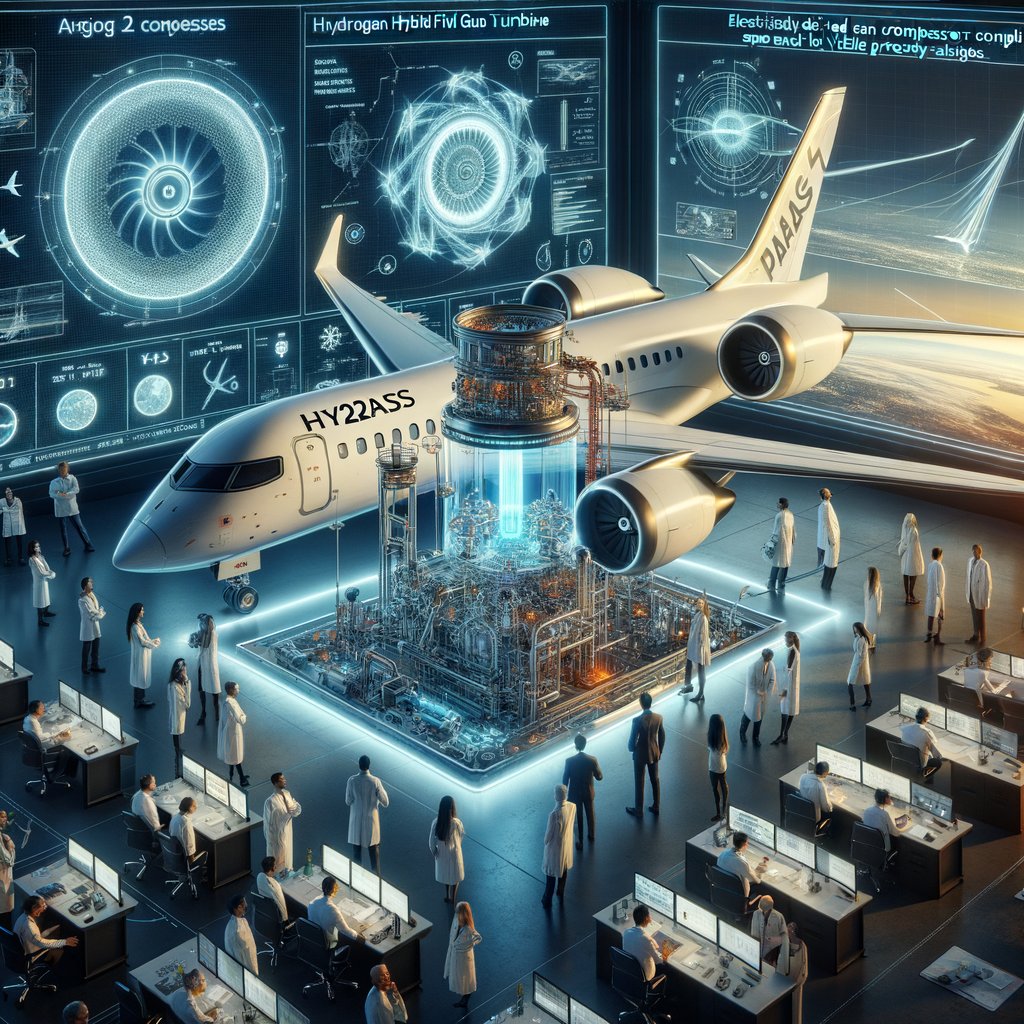Image created by AI
Revolutionizing Air Travel: The Hydrogen Hybrid Power for Aviation Sustainable Systems (Hy2PASS) Initiative
In an ambitious stride toward sustainable aviation, the Hydrogen Hybrid Power for Aviation Sustainable Systems (Hy2PASS) is set to redefine the future of air travel. This cutting-edge program spearheads the integration of hydrogen hybrid fuel cell/gas turbine engine power systems into commercial aircraft, emphasizing mission-optimized performance and significant environmental benefits.
Hy2PASS is not merely about hybridization as a concept but focuses on a unique architecture that revolutionizes the core elements of aircraft design. Unlike traditional methods that merge electrical or mechanical power from different sources, Hy2PASS innovates through air handling. The program utilizes a fuel cell to power an electrically driven compressor. This compressor not only delivers oxygen to the fuel cell's cathode but also to the burner of the gas turbine, eliminating the necessity for core compressor stages in the thermal engine. This architectural shift allows the compressor to operate independently from the turbine stages, enabling variable pressure ratios and introducing a new level of efficiency in aircraft operations.
The implications of such a system are profound. By mechanically decoupling the compressor and the turbine, Hy2PASS facilitates a more flexible and energy-efficient operation, drastically reducing the mission energy requirements of aircraft while advancing a viable zero-emissions solution. This initiative is poised to lead to the development of new, radically optimized aircraft designs tailored to specific missions, enhancing overall performance and sustainability.
The potential of Hy2PASS extends beyond technological innovation. The project aligns seamlessly with NASA's Strategic Objective 3.2, focusing on driving efficient and sustainable aviation through revolutionary vehicle advances and efficient flight operations. Positioned under ARMD Strategic Thrust 3, Hy2PASS specifically targets ultra-efficient subsonic transports, marking a critical step towards achieving these overarching goals.
As the aviation industry grapples with increasing pressure to reduce its environmental footprint, Hy2PASS offers a promising pathway to not only meeting but exceeding these challenges. Through the program, researchers will demonstrate the feasibility of the Hy2PASS system, exploring methods for optimal aircraft system configuration and mission trajectory to minimize energy consumption and eliminate direct emission climate impacts.
Looking ahead to 2025, when selections for further development are expected, the aviation sector anticipates significant progress in making sustainable technologies viable for widespread commercial use. Hy2PASS does not just envision a future of sustainable flying; it actively creates the blueprint for it, setting a benchmark for future innovations in the field.
